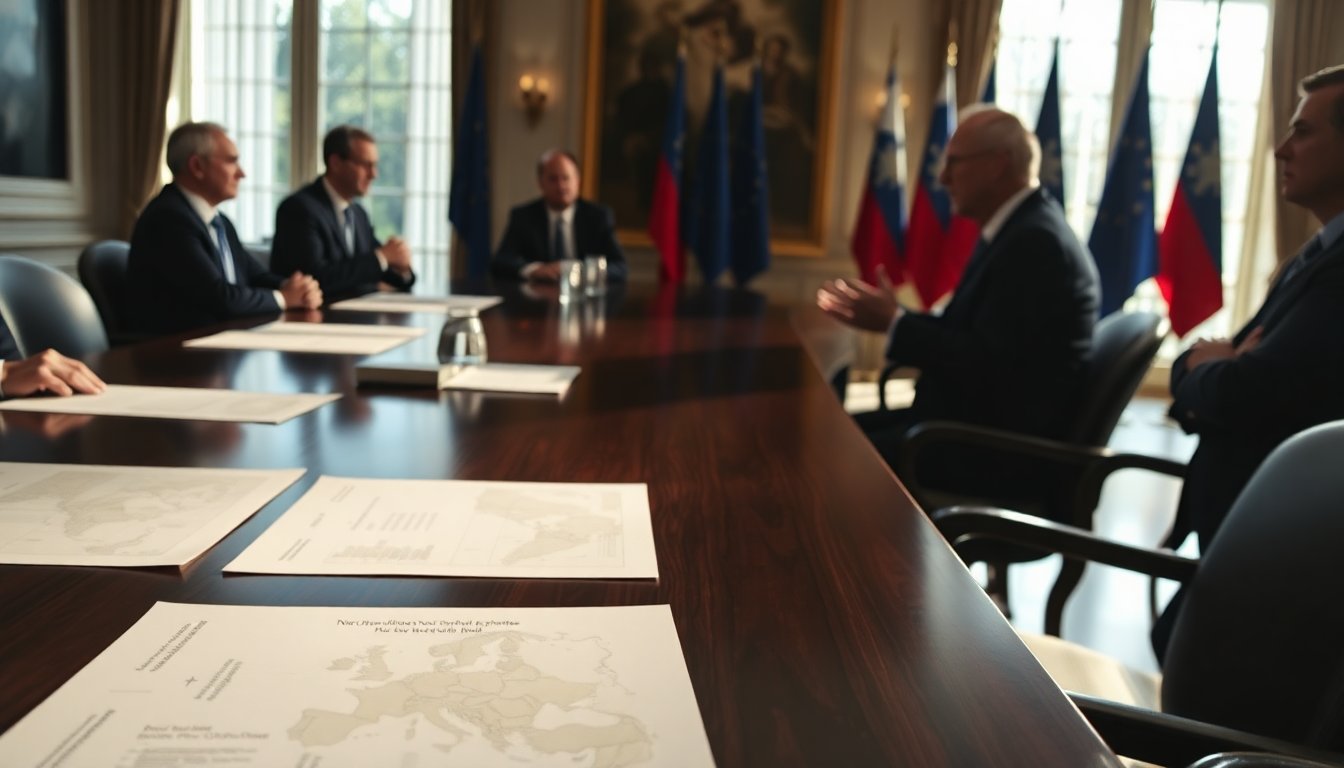Table of Contents
European Union imposes new sanctions on Russia
The European Union has taken significant action by implementing a new set of economic sanctions against Russia. This move complements measures previously introduced by the United States. The sanctions aim to sever critical funding that bolsters Moscow’s military operations in Ukraine, with the ultimate goal of compelling President Vladimir Putin to participate in peace negotiations.
Ukrainian President Volodymyr Zelenskyy has been a strong proponent of these international sanctions. He has consistently urged the global community to respond more assertively to Russia’s aggressive actions. During a recent summit in Brussels, Zelenskyy expressed his appreciation for the EU’s latest decision. He stated, “We waited for this. God bless, it will work. And this is very important for us.” This statement highlights Ukraine’s expectations as it confronts an ongoing existential threat.
Overview of new sanctions
The European Union has introduced sanctions targeting the oil and gas industries, key components of Russia’s economy. These sectors generate substantial revenue that enables the Russian government to fund military operations while maintaining economic stability domestically. The sanctions also address the aging fleet of tankers that Russia uses to bypass existing restrictions, along with the country’s financial sector.
In addition, the new measures will restrict the movement of Russian diplomats throughout the EU. This change signifies a notable shift in the bloc’s interaction with Russian representatives. Ukrainian President Volodymyr Zelenskyy has urged other nations to adopt similar actions, highlighting the importance of global unity in response to Russian aggression.
Challenges and ongoing conflict
Despite numerous sanctions imposed since the start of the conflict, the war shows little sign of resolution. Ukrainian forces continue to hold back the larger Russian military along a 1,000-kilometer frontline in a grueling war of attrition. Daily long-range strikes from Russia have targeted Ukraine’s infrastructure, particularly its power grid, as winter approaches. In response, Ukraine has concentrated on disrupting Russian oil refineries and manufacturing facilities.
Energy revenues are crucial to the Russian economy, allowing President Putin to allocate resources to the military while avoiding domestic inflation or a currency crisis. This dependence on energy exports highlights the importance of newly announced sanctions aimed at weakening Russia’s economic position.
International response and future implications
Senior officials in the European Union and the United States have been engaged in extensive discussions about strategies to increase pressure on the Kremlin. Reaching a consensus within the 27-nation bloc has proven difficult, as demonstrated by the nearly month-long negotiations preceding the latest round of sanctions. Nevertheless, the EU has implemented 18 packages of sanctions since the onset of the conflict, each targeting specific sectors of the Russian economy.
The recent sanctions imposed by the United States on major Russian oil companies, including Rosneft and Lukoil, followed President Donald Trump‘s decision to cancel plans for a meeting with Putin. He cited concerns about the potential for unproductive discussions. The U.S. continues to navigate its own diplomatic approaches as the Russian leader remains firm in his demands.
The looming threat of nuclear escalation
President Putin’s recent order for drills involving Russia’s strategic nuclear forces underscores a serious military readiness. This action serves as a stark reminder of the possible outcomes of ongoing hostilities. It adds complexity to an already tense situation, emphasizing the fragile state of international relations amid nuclear threats.
The future remains uncertain as global attention focuses on the developments in Ukraine. The European Union’s commitment to imposing sanctions reflects a broader strategy aimed at supporting Ukraine while counteracting Russia’s increasingly aggressive stance. As the conflict evolves, the effects of these economic measures will become evident, influencing both European security and global geopolitical dynamics.


